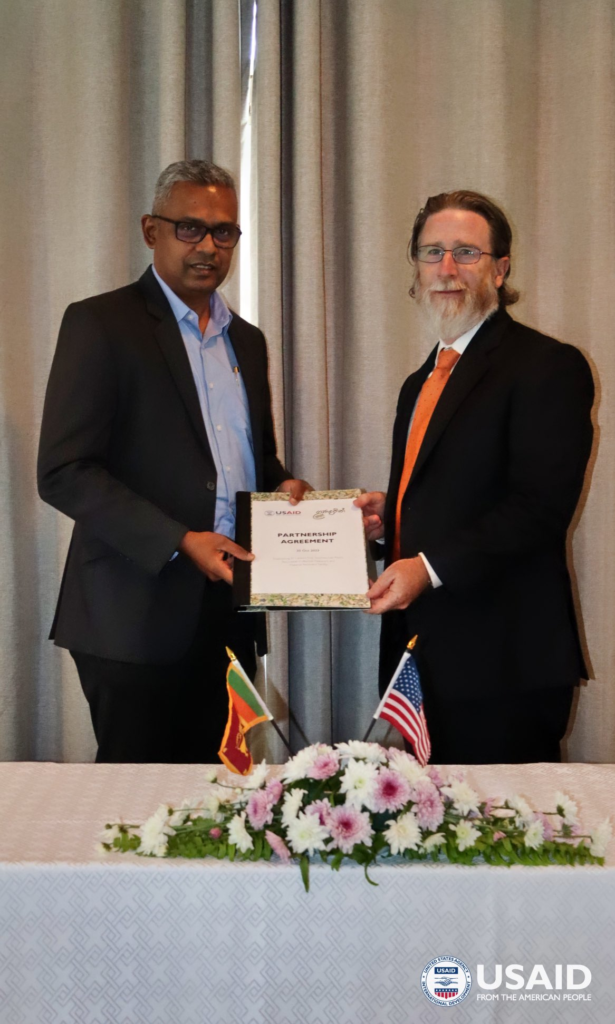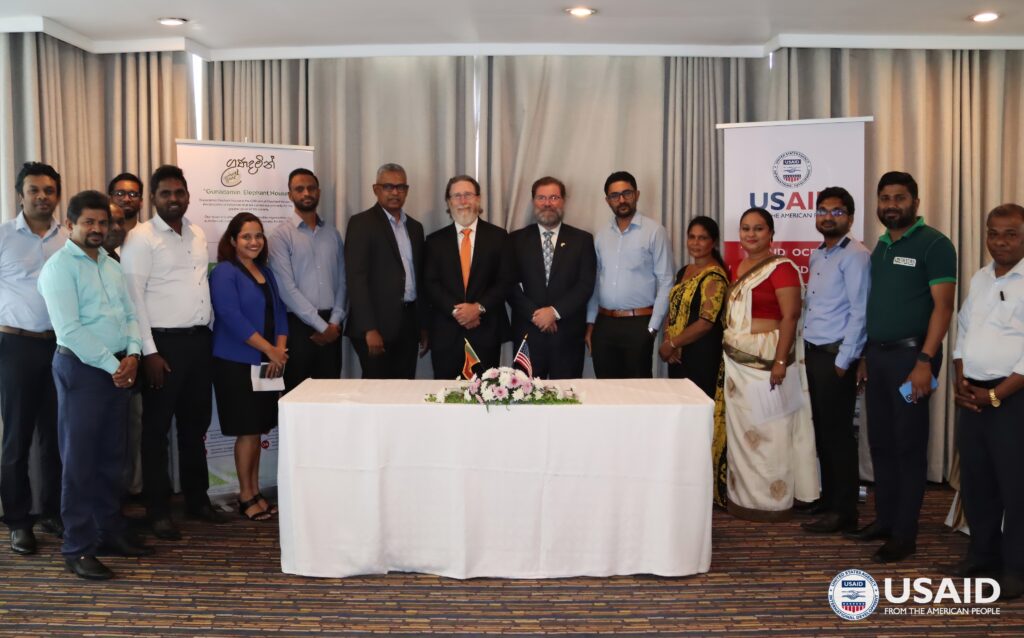USAID – Ceylon Cold Stores PLC Partnership Pioneers Women-Led Recycling Initiatives in Sri Lanka
The United States, through the U.S. Agency for International Development’s (USAID) Ocean Plastics Reduction Activity, and Gunadamin Elephant House of Ceylon Cold Stores PLC (CCS) have solidified their alliance through a Memorandum of Understanding. This collaboration aims to establish Sri Lanka’s inaugural plastic recyclable collection network and material recovery facility, led by women, emphasizing the separation and processing of recyclable materials.
Initially launched in Dickwella, Matara, this partnership, supported by Soba Kantha Environmental Management and Community Development Foundation and Viridis Pvt Ltd, a leader in Sri Lankan plastic recycling, has successfully gathered 1,175 kilograms of plastic waste. The goal is to broaden the initiative’s scope across five coastal provinces, partnering with grassroots women’s organizations. These partnerships aim to identify and empower economically disadvantaged women from fishing communities, transforming them into active plastic collectors and environmental stewards.
“The United States, through its longstanding relationship with Sri Lanka, believes in the transformative power of collaboration,” remarked Christopher Powers, Director of the Office of Economic Growth, USAID Sri Lanka and Maldives Mission. “This partnership epitomizes that belief, promising not just environmental conservation but also championing women’s roles in leading the change.”
Daminda Gamlath, President Consumer Foods Sector, John Keells Holdings from CCS conveyed, “Gunadamin Elephant House’s unwavering commitment to responsible plastic disposal and waste management initiatives has garnered recognition within the community. Through this visionary partnership, our aim is not only to enhance our efforts in plastic collection but also to empower women, fostering a resilient and environmentally conscious Sri Lanka. This collaboration represents a unique and powerful synergy that exemplifies the potential for positive change when sustainability and women’s empowerment join forces.”
As part of the initiative, women identified as potential recyclable collectors are trained and equipped to safely gather specific types of waste — plastics and metals that have the potential for profitable recycling. With the backing of Ocean Plastics Reduction, Gunadamin Elephant House and Viridis, these women are provided with essential tools, such as gloves, scales, and collection bags. Grassroots organizations then receive the collected waste at their dedicated collection centers.
Viridis takes the helm during the recycling phase, ensuring that the valuable plastic and metal waste is efficiently processed. In return for their contributions, the women are compensated. This model exemplifies a circular economy: plastics and metals consumed are reintroduced into the value chain, significantly reducing pollution and thereby closing the loop and moving Sri Lanka one step closer to a circular economy. Beyond its environmental benefits, this initiative also strengthens the local economy, as the women’s earnings directly benefit their families and the wider community. Moreover, through their active involvement, these women play a pivotal role in promoting eco-conscious practices within their neighborhoods.
At its core, this collaboration represents more than mere plastic collection; it’s a strategic shift towards sustainable economies and a conscious effort to position women in sectors from which they’ve historically been sidelined. It builds economic resilience and empowerment pathways for women in communities that need it most.

The USAID Ocean Plastics Reduction Activity, with its five-year focus, is committed to reducing environmental plastics, enhancing solid waste management practices, and magnifying recycling initiatives in both Sri Lanka and the Maldives. This collaboration is emblematic of USAID’s broader mission: championing environmental stewardship while driving socioeconomic empowerment.
With a 150-year legacy, Elephant House is a cherished brand, deeply ingrained in Sri Lankan households, known for its trustworthiness and commitment to societal betterment. Gunadamin Elephant House stands as the Corporate Social Responsibility arm of Elephant House. This project falls under the Waste Management pillar, which, together with the Community and Sustainable Sourcing pillars, forms the holistic approach of Gunadamin Elephant House towards sustainable and responsible practices.


